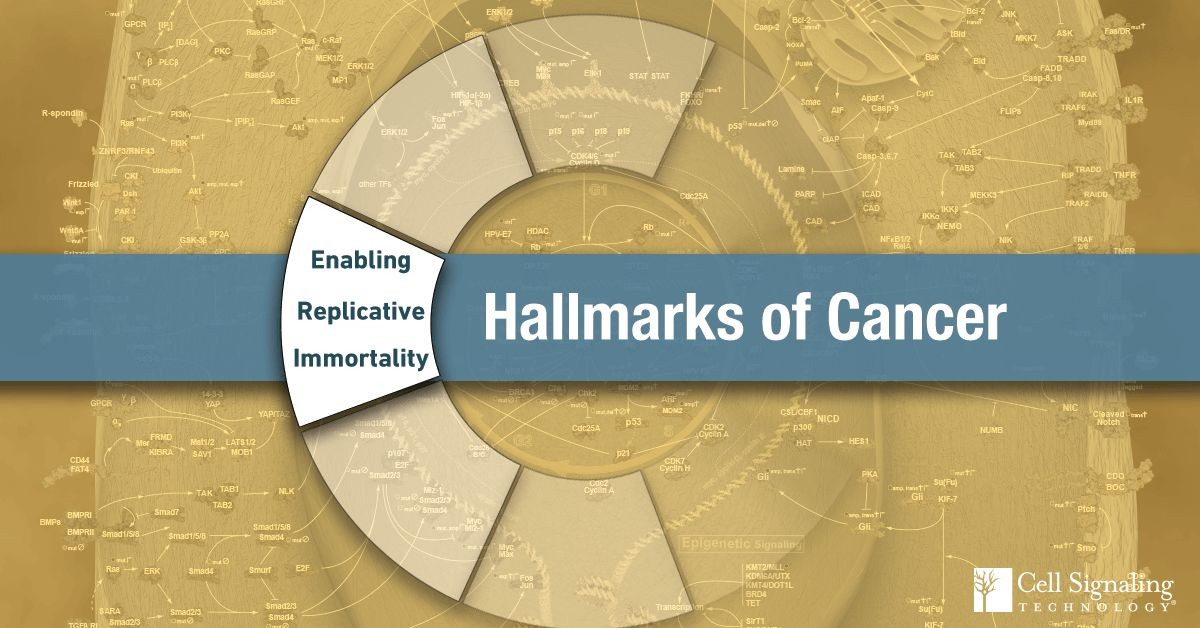
Targeted Therapy: Replicative Immortality in Cancer
Normal human cells have a limited lifespan and undergo apoptosis when they are old, damaged, or no longer needed. However, cancer cells have genetic mutations that allow them to replicate indefinitely and evade apoptosis, achieving replicative immortality.
What is targeted therapy for cancer?
Targeted therapy is a specialized treatment that disrupts cellular mechanisms promoting the growth and proliferation of cancer cells. Rather than directly killing cancer cells, targeted therapies alter their biological composition and inhibit their growth.
There are two types of targeted therapies:
- Small molecule inhibitors: Organic compounds that interfere with cancer cell activity by attaching to the cell surface or entering the cells.
- Monoclonal antibodies: Lab-produced cancer-specific antibodies that activate the immune system by attaching to the cancer cell surface.
Understanding Cancer
Cancer is a group of diseases caused by the abnormal and uncontrolled growth of cells due to genetic mutations. These mutations can be inherited, caused by environmental factors or viral infections, or occur spontaneously.
Mutations in the genes responsible for regulating growth and development (oncogenes) lead to the accumulation of mutations, transforming a normal cell into a cancer cell. Cancer cells defy the usual checks and balances of cell growth and division.
How Cancer Cells Grow
Cancer cells grow rapidly, surpassing the growth rate of normal cells. Mutations in cancer cells enable them to overcome the checkpoints that control normal cell growth. Each stage of cell growth is regulated by molecular conditions and checkpoints.
Human cells contain DNA, proteins, and genes encoding cell growth and function. DNA is housed in the nucleus of the cell and surrounded by cytoplasm, which contains various proteins and organelles such as mitochondria that are necessary for cell function and metabolism.
The cell cycle consists of four stages:
- Gap1 (G1): A cell grows in size and prepares for DNA replication, monitored by the G1/S Checkpoint, which halts growth if inhibitory signals are present.
- Synthesis (S): DNA replication takes place. The G1/S Checkpoint initiates repair or apoptosis if DNA damage is detected.
- Gap2 (G2): The cell continues to grow. The G2/M Checkpoint ensures the absence of DNA errors or damage before proceeding to the next stage.
- Mitosis (M): Chromosomes are precisely segregated into two daughter cells with the help of cellular structures known as spindles.
Depending on conditions, daughter cells can continue to grow and divide, remain quiescent in G0 stage until receiving growth signals, or differentiate into cells with specific functions that can no longer divide.
In cancer cells, genetic mutations disrupt these checkpoints, allowing them to divide despite DNA damage. Cancer cells become resistant to growth inhibition and apoptosis signals, proliferating at the expense of healthy cells.
Therapies Targeting Limitless Replication in Cancer
Targeted therapies aim to disrupt the cell cycle progression in cancer cells to halt their limitless replication. Various small molecule drugs targeting different stages of the cell cycle have entered clinical trials:
Anti Telomerase Agents
Telomeres, repetitive DNA sequences at the ends of chromosomes, prevent loss of vital DNA information during cell division. Normal cells have telomeres that gradually shorten with each division, leading to cell aging and apoptosis when they become too short to protect the DNA.
Cancer cells activate an enzyme called telomerase to maintain their telomere length. The first antitelomerase agent targeting cancer cell telomerase activity is currently being tested in clinical trials.
CDK Inhibitors
Cyclins and cyclin-dependent kinases (CDK) regulate the different phases of the cell cycle. CDKs are activated by cyclins, and specific cyclin/CDK complexes are required for each stage to progress past the checkpoint.
Cyclin/CDKs inhibit a growth inhibiting protein called retinoblastoma, which suppresses DNA transcription. Small molecule drugs that inhibit the different cyclin/CDK protein complexes at different cell cycle stages are currently in clinical trials.
CHK Inhibitors
Checkpoint kinases (CHK1 and CHK2) are involved in recognizing DNA damage and initiating repair or apoptosis. Dysfunction in the checkpoint mechanism allows cancer cells to progress in the cell cycle despite DNA defects. Small molecule CHK inhibitors, combined with chemotherapy or radiation, are being tested in clinical trials.
MTK Inhibitors
The mitotic (M) phase of the cell cycle involves precise segregation of the whole genome into daughter cells. Mitotic kinases (MTKs) such as Auroras, CDK1, Plks, and Nek2 regulate this process. Cancer cells have excessive Auroras, leading to imperfect segregation and malignant transformation.
Small molecule drugs that inhibit MTKs and induce apoptosis are in early stages of clinical development.
Kinesin Inhibitors
Kinesin spindle proteins are responsible for spindle formation and proper cell division. Blocking kinesin activity arrests the cell cycle and induces apoptosis. Kinesin inhibitors are currently being tested in phase II clinical trials.
PARP Inhibitors
Poly ADP-ribose polymerases (PARP) help repair DNA breaks in normal cells. PARP inhibitors prevent DNA repair in cancer cells, leading to apoptosis. They can be used as monotherapy in certain cancers with repair/apoptosis deficiency or in combination with chemotherapy or radiation. PARP inhibitors are currently in early stages of clinical trials.


